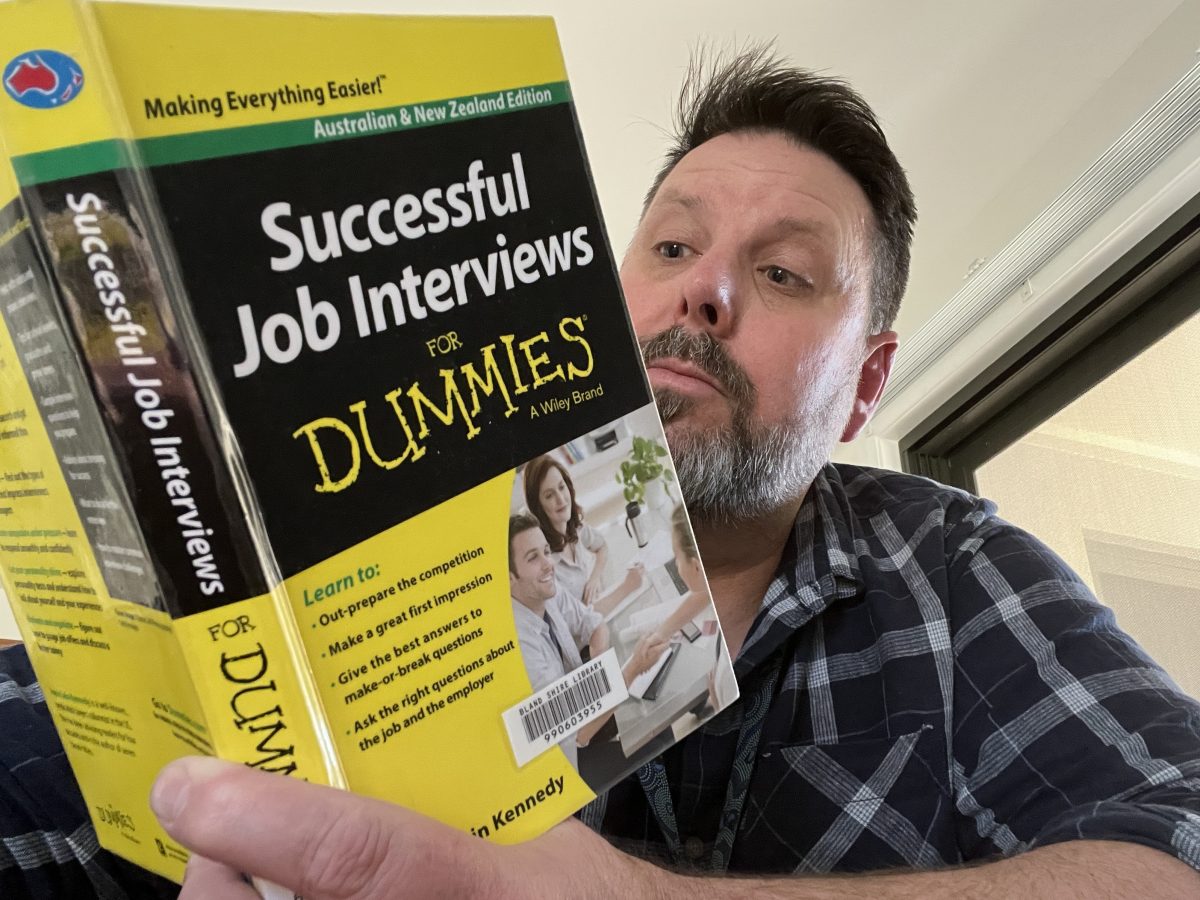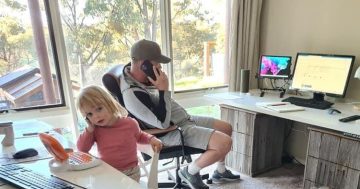
While it’s important to prepare, you should also be comfortable with not having all the answers. Photo: Chris Roe.
According to Seek, February is the job market sweet spot.
Employers are through the summer shutdown and the end of the financial year is far enough away that hiring new staff seems like a good idea. On the flipside, employees have returned from holidays and are transitioning from the beach to the office and asking, “What am I doing with my life?”
It’s the perfect intersection of supply and demand but, of course, standing between employer and employee, is the dreaded job interview.
There are few things you’ll do in your working life that are more excruciatingly uncomfortable.
The experience can range from a firing squad style examination to a ‘relaxed’ chat with funky people who seem more intent on impressing you than discussing your resume.
I’m no expert or HR guru, but I have been on both sides of the table and have participated in my share of trainwrecks and charmed connections, so I thought I’d share a few thoughts on how to get through as emotionally unscathed as possible.
First, start with the right attitude and know that everyone who goes into an interview is nervous and will make a mistake; don’t beat yourself up.
You are not there to beg.
It’s easy to feel powerless when you enter an unfamiliar space where you will be judged by a group of strangers, but remember, a job interview goes both ways.
You are considering handing over a significant portion of your life and labour to this mob and you are not looking for charity. Have some thoughtful questions prepared about things that matter to you as an employee and take your time to weigh up your impressions of the company.
I once had an interview with a university about a role in their media studies department and quickly realised that their understanding of the rapidly evolving industry I worked in was rooted in the 20th century. It was never going to be a great fit, so I withdrew my application.
Be confident in what you know and accept that you won’t always have the answer.
As every ‘Job Interview for Dummies’ type book will tell you, it’s important to learn what you can about the employer and the role but remember that you don’t work there yet and you can’t know everything.
What you do know about is you, what you can do and how you learn and adapt. Don’t try to bluff your way through a tricky question for the sake of giving an answer. Ask for clarification and respond based on your own experience.
Sometimes it’s the questions that suck, not you.
The worst interview I ever had was for a junior journalist role with a major broadcaster. I was overqualified but keen for a change and thought I’d throw my hat in the ring.
To my surprise, the interview began with a “quick knowledge test” and I was relieved that I had made the effort to prepare and bone up on the news of the week.
“Where’s the Aussie dollar sitting against the US today?” the quizmaster asked, looking at me over her red-framed glasses.
“Um…”, I was stumped and my brain went into a spin. Why would I know that? I’m not a finance reporter, and surely my job as a journalist is to know where to find that sort of information, not know it off the top of my head!
“Around 75 cents I guess,” I stammered, only to be sternly informed that I was a good 2 cents off and was hit with the second question on the current price of oil per barrel. What!?
Completely wrong-footed, I floundered through what felt like a maths exam and left the interview feeling demoralised.
Given that they seem to have been looking to recruit Rain Man, it was probably for the best that I did not get the gig!

When there’s one job and multiple candidates, don’t take it personally if you miss out. It may just be the maths. Photo: fotostorm.
Be personable, but not personal.
A few years later as a manager on the other side of the desk, an interview took an outrageous turn when the candidate decided to share a personal anecdote.
In response to the standard question, “Tell us about a time you experienced conflict and how you resolved it”, the interviewee proceeded to tell us how they had been secretly cheating on their partner and when it all blew up, they had chosen to remain with the wrong person and ultimately ended up alone.
Cue the shocked silence.
While it’s important to be yourself, make sure you keep it professional … and never talk about your love life!
Don’t cosplay as someone you are not.
According to the adage, you should “dress for the job you want, not the job you have”, but I would add that you should still present yourself in an authentic way.
Underdressing for an interview will send the wrong message, but overdressing can also leave you feeling uncomfortable and looking inexperienced.
Aim to make a good impression and wear something that will suit the role you are applying for, but make sure you feel comfortable at the same time.
Remember that there is only one job.
Missing out on a job is disappointing, but it’s not necessarily your fault.
There is generally only one job and any number of qualified applicants. The maths is simple. Most of them will miss out.
You may have blown it, but it also may have come down to a coin toss between several solid contenders.
I advise a Zen approach. Hold it lightly, don’t take it personally and learn from the experience.
















